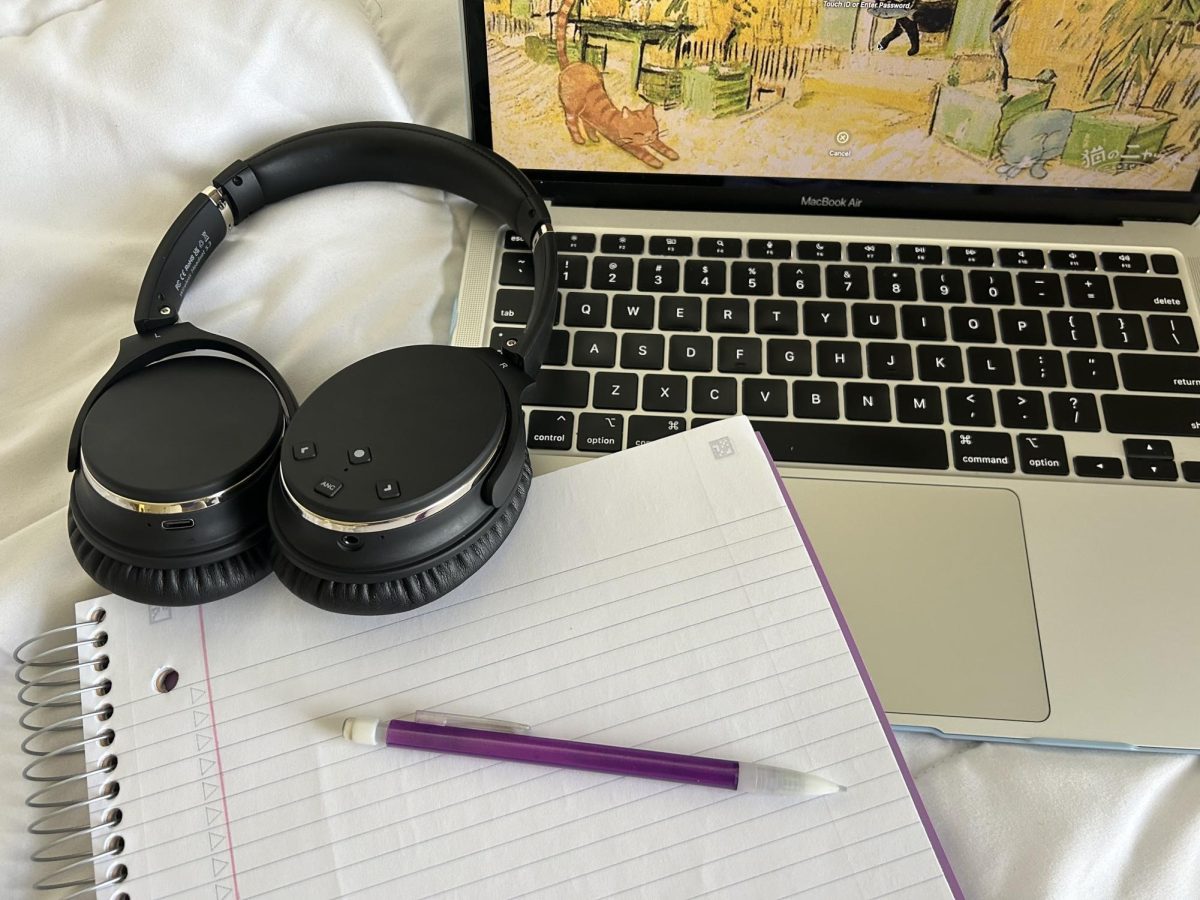As Anna Paul, a senior psychology major, sits on the fourth floor of the University Library, her headphones are playing “Too Sweet” by Hozier while she works on a case study for one of her psychology classes.
Paul usually spends around 20 hours a week on homework, and she always enjoys listening to music while doing so.
“Music has always been a big part of my life, so I always noticed that it was very relaxing,” she said. “Sometimes homework can be stressful.”
The brain is both negatively and positively affected by listening to music while completing tasks like studying or doing homework.
Many students have different preferences about music when it comes to schoolwork.
Chloe Wilson-Henline, a senior public relations major, said she finds listening to music tends to be more of a distraction when she is studying or working on assignments.
“I just feel like it’s too distracting, and I can’t focus on my work if I’m listening to something else,” she said.
There are many beneficial impacts of listening to music while studying, like reducing stress and improving mood, which can make the experience more enjoyable and efficient.
Also, music can be used as motivation; rewarding a study session with your favorite music can make learning new information easier.
More specifically, studies have shown listening to classical music can increase focus and help boost memorization skills while learning new information.
“A lot of the time it helps me focus,” Paul said. “I usually only listen to instrumental music when I’m working on homework or especially reading just because I’m not focusing on lyrics, and I think it quiets a part of my mind, so my thoughts aren’t racing or I’m not getting distracted by other things.”
Many negative effects can also come with listening to music while studying. In a lot of cases, it can be distracting. Studies have also show listening to music reduces working memory capacity, which means it is harder to retain information at once.
“If I’m just mindlessly putting something together like a PowerPoint or something like that, I can [listen to music], but if I’m actively studying or have to read and take notes, I just can’t get my brain to focus on one thing,” said Wilson-Henline.
Students may struggle to complete reading assignments with music; listening to music, especially music with lyrics, can lower reading comprehension and make it harder to absorb the material.
In her current internship, Wilson-Henline makes a lot of graphics and uses Canva often. She likes to put on her personal music while creating to get into a more creative headspace.
“When I’m doing more creative stuff, I can listen to music and it helps,” she said. “I get into my best creative process when I am listening to music that I like, so I think it definitely has a positive impact on me when I’m doing something creative like creating graphics and things like that.”
Music can evoke emotions so listening to music you have a connection with or music that you know well can lead to distractions.
“Mostly, I just look for something that doesn’t have lyrics,” Paul said. “Sometimes there will be instrumental music that will be a cover of a pop song, so I have to be particular to not listen to that type because then I’ll just be singing the lyrics in my head anyway.”
Some helpful tips to optimize the studying experience while listening to music are to keep in mind the volume of the music and the complexity of the lyrics or structure.
Angie Robinette is a reporter. You can contact her at [email protected].








